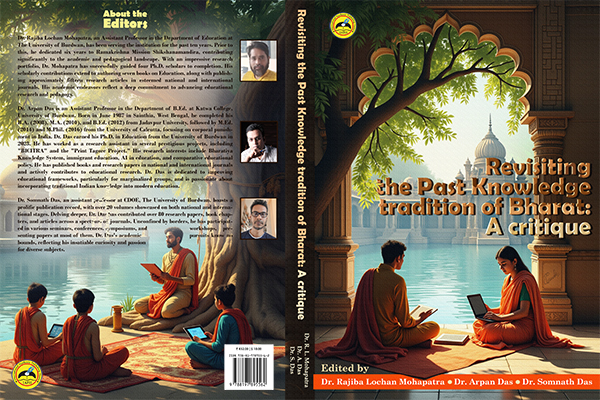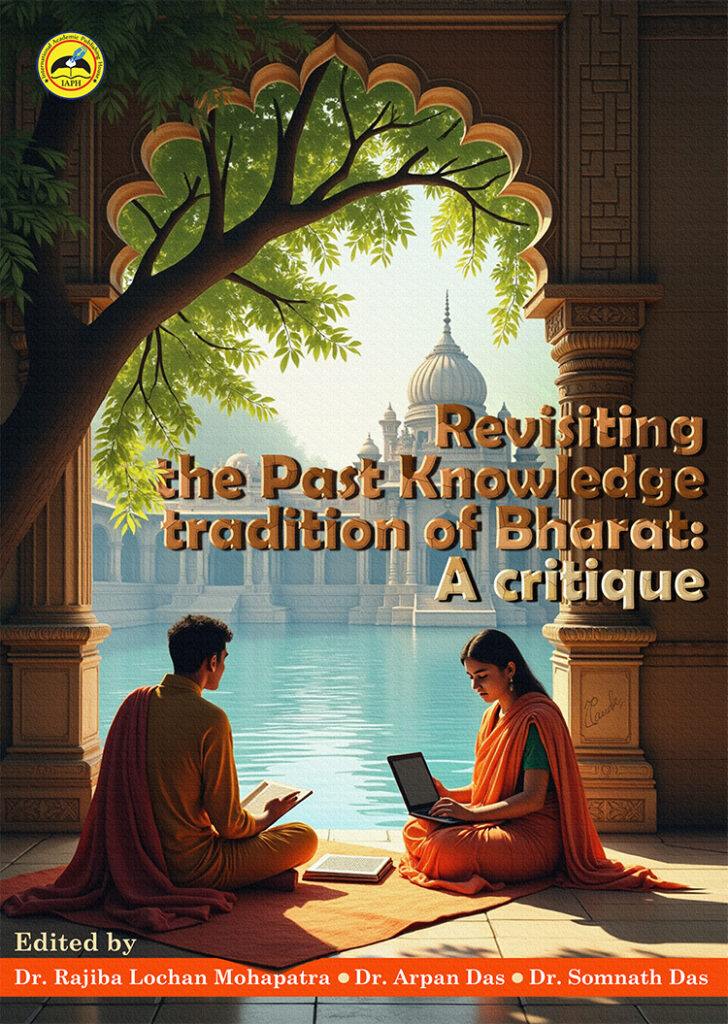| CHAPTERS | | CHAPTERS AND AUTHORS | |
| | Book Cover |  |
| | Introduction to the book |  |
| Chapter 1 | | Preserving regional literature: By the people, Of the people – Meera Vasani |  |
| Chapter 2 | | Geographical indications and Indian traditional knowledge system (Bharatiya Paramparik Gyan) : safeguarding biodiversity and legal frameworks – Tanumoy Panda |  |
| Chapter 3 | | Chanakya’s Arthashastra: Its culture and political relevance for the present time- Kalyani Samantaray |  |
| Chapter 4 | | Holistic Development in Vedas: An Analysis- Rajib Santra |  |
| Chapter 5 | | Rediscovering the wisdom of ancient Hindu jurisprudence: enduring principles and their modern-day relevance on the Global Stage- Arpan Das |  |
| Chapter 6 | | Spiritual wealth: A notion of personal development- Susmita Choudhury and Somnath Das |  |
| Chapter 7 | | Economic thoughts in Ancient India- Some fundamental issues and their relrvance- Arnab Majumder |  |
| Chapter 8 | | Cosmos: The vedic oblivision of the universe- Arkapratim Changder |  |
| Chapter 9 | | The integration of Bharatiya Jnana Parampara into modern education through the National Education Policy (NEP) 2020 towards Holistic views in Spiritual learning- Somnath Das, Prakash Ray and Saeed Anowar |  |
| Chapter 10 | | Chemical knowledge and practices in Ancient and Medival India- Saptarshi Biswas |  |
| Chapter 11 | | Brahman in Upanishads and Luminiferous aether in physics: An analogy- Kousik Mukherjee |  |
| Chapter 12 | | Gettier-like Problem in Indian Epistemology- Prakash Mondal |  |
| Chapter 13 | | Teacher Education in Colonial India: An Indian Intellectual Discourse- Ajoy Ghosh |  |


